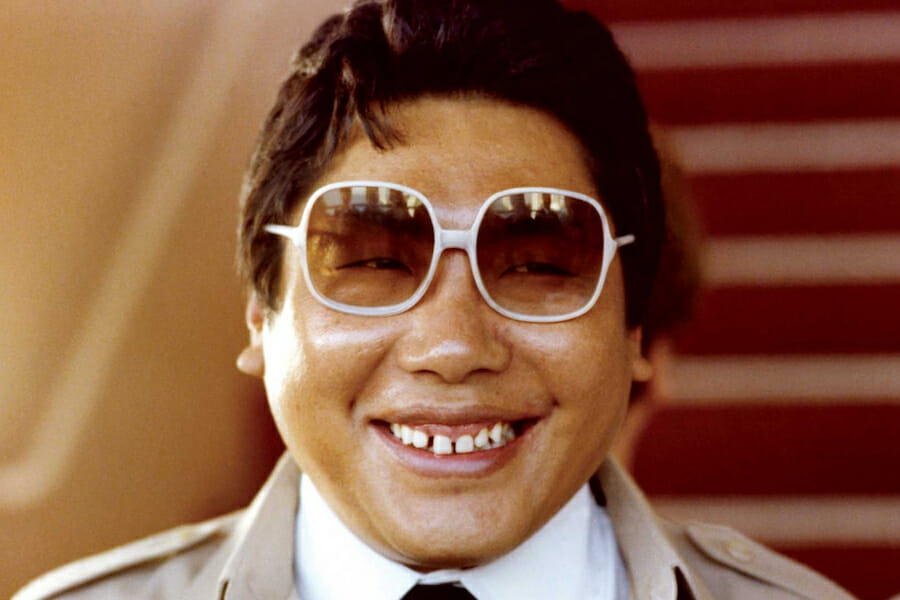
‘Crazy Wisdom’: Tibetan Buddhist Heaven
As I watched, and attempted to appreciate Crazy Wisdom, a documentary about Chögyam Trungpa Rinpoche, the legendary bad boy of American Tibetan Buddhism, now being screened at the Rubin Museum, I discovered that I was meditating about my own Tibetan Buddhist retreat several years ago. Although I have never met Trungpa, I did experience a brief flash of enlightenment, when I meditated with Trungpa’s adherents on a three-day retreat in upstate New York. It was far from pleasant, but it was instructive. The grounds of The Tibetan Buddhist Lodge were deeply peaceful, and incidentally, deeply green.
There was even a gazebo next to the koi pond. The koi were hypnotic to watch as they swirled and twirled about, slowly, in the murky depths. The frogs croaked in a distinctive three-croak sequence, making a full circle around the pond – croak north, croak west, croak east. I was tempted just to sit on the deck or below in the gazebo, without moving till the end of my stay. The idea of a retreat from New York City was attractive. Tibetan Buddhism, described as a more laid back form of American Buddhism, might have been the answer. Accustomed to formal Zen retreats, with their strict schedules of rising at 4:00 a.m., long hours of silent motionless meditation, labor, rigorously stylized meals, more work and more silent meditation before lights out at 8:00 p.m., a relaxed retreat sounded extremely attractive. I should have done more research.
Although this is vigorously disputed, Tibetan Buddhism has been termed a cult.
Chögyam Trungpa Rinpoche, the leader of American Tibetan Buddhism and spiritual father of this retreat house, was a highly eccentric character whose personal qualities, as well as his spiritual wisdom, influenced his followers but also alienated his detractors.
As the director of Crazy Wisdom put it, Chögyam Trungpa Rinpoche did not fit most Westerner’s vision of a holy man from the East, “Raised and trained in the rigorous Tibetan monastic tradition” he “shattered Western notions about how an enlightened teacher should behave when he renounced his monk’s vows & eloped with a sixteen year-old aristocrat…He openly smoked, drank, and had intimate relations with students – yet his teachings are recognized as authentic, vast, and influential.”
Here is a short but intense version: Dharma teachings are not going to be romantic or beautiful – oh no! The teachings are going to be painful, even invoking paranoia. At the same time, we can work with the situation and find something creative in it. Chögyam Trungpa espouses what is termed “crazy wisdom,” an unconventional, outrageous or unexpected behavior said to be characteristic of certain spiritually accomplished beings, thereby setting accepted practice on its head. It could rightly be perceived as egotistical heedless self-indulgence. The film makes sure that this point is made again and again. This behavior perhaps provides the source of his Lodge’s reputation for “relaxed” behavior. Had I seen this film before I went on my retreat, I would have rethought the whole affair.
I think it’s fair to say that although his followers have been delighted with this film’s portrayals of Trungpa, this portrait of the dissolute Tibetan wild holy man – however full of blinding insights, which are more accessible in print than on screen – is not likely to convert anyone who is not already so predisposed. The Lodge had been described to me as a perfect spot to go to meditate, hike, read and doze by the pond. And it was. In the evening, I sat and listened to croaking bullfrogs, distant thunder and peepers. I smelled fragrant pine trees and grass, alone but yet surrounded by brilliant petunias—purple and pink and pale lavender.
At one point, hummingbirds flocked to the deck. One tried to hit the windowpane, which reflected the petunias so well that the poor bird thought he was heading directly towards more flowers. Fortunately, he did not hit the plane of glass head on and was able to flit away. Unlike the little hummingbird, however, I did hit the glass head on. I made the mistake of speaking too candidly to a staffer about their parent lodge in Vermont. My remarks were passed on at furious lightning speed throughout this tiny community.
The movie brought it all back. What was it like to be in a 70’s Vermont Tibetan Buddhist community with Trungpa? Or a 90’s retreat lodge? It was like Woodstock without as much mud. Shaggy, open mouthed devotees, wagging their heads, chanting, singing, dancing, and adoring Trungpa, their Rinpoche. (“Precious one” – a title) Reverence. Adoration.
And this afternoon’s movie audience, grayer but no less exalted, nodded violently, gasped, laughed extravagantly, waved their hands high, uttered words of praise to Rinpoche—well, they might easily be Ram Doss’s people, forty years later. In the movie, Crazy Wisdom, even machers like Allen Ginsberg or wild men like Ram Dass with his blissed out retinue bowed their heads when they spoke to Rinpoche with humility and self-abnegation. While he sat on his throne, staring impassively and uttering enigmatic, occasionally wildly insightful comments…or merely riffed about an errant thought he had.
Chogyam Trungpa had had an intense, absolute control over his many lodges and retreat houses, communities and even a university in Colorado. For example, he decided that his American followers spoke a sloppy form of English, unlike his own precise articulation. He decreed that his devotees must learn precise “Queens’ English” – like his own—and instructed them all to carry out endless, meaningless elocution exercises. He also decided that his form of Buddhism must reflect every form of life. Chögyam Trungpa created his own Buddhist armies, something of a contradiction in terms. He made the rules. However, he alone (and his partners) broke the rules. And this community follows suit 20 years later.
They felt that I had to acknowledge that I had broken the rules. I had to acknowledge the superior wisdom of my teachers, and do penance and obey. The job of exacting penance was delegated to Carolyn Koo. Because of her high religious status, and her own personal charm and authority, Carolyn was a powerful person within Tibetan Buddhism. Thus, even her casual comments had significance. When I first met her, she said, “I hear you were much beloved at our parent lodge for your willingness to tolerate discomfort.” They called you a true “barking dog!”
Although I laughed merrily, dutifully, the dead silence around me made it clear that a point was being made. On a day hike in the woods surrounding The Lodge, I learned that there might be worse fates than being branded as a barking dog. One’s instructor might practice his own form of “crazy wisdom” on the group. And the community dogs might well bark back. Our leader instructed us to sit down and begin meditation. Mosquitoes were out in force—we had armed ourselves with bug repellant but even so, it was difficult to concentrate between hums and bites. But one practitioner, Brenda, had the great misfortune to sit down on a rock inhabited by a colony of fierce fire ants. They swarmed all over her body, biting ferociously.
We were asked to share our perceptions. 20 minutes later, Brenda said quietly that she had been bitten severely and was in a lot of pain. Our instructor said impassively that he had seen no reason to respond. We were all supposed to be capable of deep meditation and hence be beyond pain.
Why then would Brenda need assistance? Carolyn supported this point of view. She threw her head back and laughed loudly. She then related a parable to explain how in meditation one must be able to tolerate virtually anything, “Chögyam Trungpa says that one must be able to meditate even if a BLAST OF HOT STINKING AIR FROM THE NEW YORK CITY SEWERS hits our nostrils!”
The meditation retreatants, obedient as sheep, got the message. Nobody inquired how Brenda was, or if they could help her. There was raucous laughter. Brenda, the sufferer laughed too with some difficulty and said she had recovered through the power of meditation. Why did no one intervene? Perhaps because we had just encountered authentic crazy wisdom. Perhaps because just by being there we had entered into an alternative world—where the rules were upside down and nobody wanted to be the first (no, second) to break them. Shortly after this incident, I decided it was time to cut bait.
I spent a little more time with the koi as they swirled and twirled about slowly in the murky depths. I listened to the frogs croaking in a distinctive 3-croak sequence, making a full circle—croak north, croak west, croak east. So, yes, I did encounter some of the peace that I sought. My heart rate slowed, my breathing deepened, I became a little calmer before boarding the bus to go back to the city. But I also encountered some telling words of truth. I feel that the second proverb accurately sums up my experience, “One cannot reason with a barking dog.”

